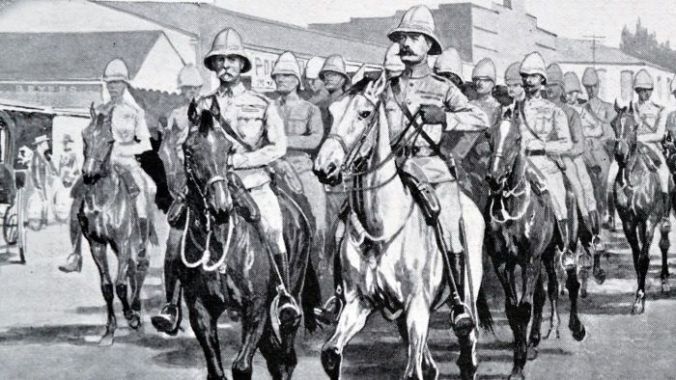
Credit: Universal History Archive Universal Images Group Getty Images
Tram 83 is a captivating piece of poetry that is quite literally a portal into a distal world; or perhaps better yet, a scope into the reality of modern history. In the developing world the African Province of Congo is considered to many as civilizations roots, this is due in part to the geopolitical relationship we share with the country as a whole. While this assertion couldn’t be further form the truth and could even go as far as to be considered a negative stigma associated with historical prejudice, it nevertheless serves as a centerpiece for this novel. A notion I believe Mujila intended when writing this text. The application of history here is very intense throughout the reading. When we look into the dark history of Congo it’s not hard to imagine where all the inspiration came from.

King Leopold of Belgium – By Charlotte McDonald-Gibson
The railroad in this novel symbolizes something far greater than a means of transportation for the Congolese. The rails symbolize European occupation, resource and mineral extraction, migration, and most notable – colonization. Belgium effectively monopolized the Congo for their own economic gain at the expense of the masses. A man who sat on a throne an entire sea away yet held such a firm iron grip over the people for decades. The railroad to many, is a hateful remembrance of their past. “I’ll throw myself on the tracks if dad insists I study history.” (Mujila, 42). This is a reflection of the commoners consensus in Congo. It’s an illustration of cultural value and more importantly; a look into the value of history. I have the feeling that the Congolese engage in some form of forgetting, as their past brings them no patriotism or association with country. Instead it pains them, humiliates them, and dehumanizes them. The Belgian rule over the province in Africa was considered very totalitarian , authoritarian, and cruel even in comparison to their other European counterparts.
The entire idea of imperialism, most uniquely showcased in the events that unfolded in Africa is disgusting. And I believe Mujila capitalizes on this sentiment through the imagery of the railroads and the significance of the the novel’s title.
